Sadly, I was a late bloomer to the discovery of the works of Oingo Boingo. I, like most folks, had only heard “Dead Man’s Party” and “Weird Science” and only had a smattering of interest in front man Danny Elfman’s film composition work, mostly listening to his work on THE NIGHTMARE BEFORE CHRISTMAS. That all changed around Halloween a couple of years ago when I downloaded their fifth album as something to listen to with my daughter, as I was trying to get her into music outside of the generic claptrap that kids listen to nowadays. Needless to say, I was floored. Where had this band been all my life? I devoured their output with relish, forgoing a chronological approach to listening to their albums, rather going with what I thought in my gut would be an LP worth listening to. I started with DEAD MAN’S PARTY as mentioned above, then moving on to their second album NOTHING TO FEAR, after that DARK AT THE END OF THE TUNNEL, segueing to ONLY A LAD, dropping in on BOI-NGO after that and wrapping it up with 1984’s SO-LO and 1994’s BOINGO. Their catalogue is a rich tapestry of weird, one that’s always fulfilling, always electric and always unsafe. The songs always exist to jab you in the chest with their off-kilter approach to storytelling within song and therefore lends itself to a refreshing unpredictability. I end my journey through Boingo’s work supremely satisfied, walking away with a true appreciation for the work that Elfman and company did over the course of these eight albums and something that I can happily listen to with my kids – even as I have to avoid the deeper message of “Little Girls.” Join me as I take you through the best, and consistent discographies of any band out there. Let’s look at the works of my now-favorite band:
ONLY A LAD, the Boingo’s 1981 debut LP is as sublime and perfect as a rock record can get. Clocking in right under 39 minutes with ten compact songs that never overstay their welcome, it forges a clear course from what we expect later Boingo records to give us. We get upbeat, poppy tunes with dark, underlying lyrics that range from the (still) controversial, catchy and nightmarish (“Little Girls”), to disaffected youth (“On the Outside”), scathing indictments of the judicial system (“Only a Lad”), specifically attacking the perceptive innocence of youth despite their outright guilt (a song that soberingly holds up all too well in light of Ethan Couch and his affluenza). They also do a nicely crystalline cover of The Kinks’ “You Really Got Me,” their last cover until “I Am the Walrus” on ‘94’s BOINGO. ONLY A LAD unfortunately indulges in my least favorite rock cliché, the snotty retort to critics (“Imposter”). The stance the track takes is wrong ultimately — all critics hate us, because they want to be us – but it wraps up the toxicity of the track in an all too palatable package. The closing cut, (“Nasty Habits”) feels like a precursor to Elfman’s film composition work, particularly PEE-WEE’S BIG ADVENTURE, but it’s the complete distillation of their catalogue: music that’s jaunty, upbeat and catchy but once you tug at the surface, you’re going to find something rotten, putrid and enlightening all at the same time. But mostly, it’s deeply, deeply fucked-up. And that’s beautiful stuff, man. It’s quite the perfect way to wrap up a debut album.
At this point in Boingo’s career, they had songs cropping up in movies, like in the twin teen-angst films THE LAST AMERICAN VIRGIN (“Better Luck Next Time”) and FAST TIMES AT RIDGEMONT HIGH (“Goodbye, Goodbye”). Oingo Boingo bopped into the studio to record their second album, 1982’s NOTHING TO FEAR which is where we start to find the band gel as a fully fleshed-out musical act. It features one of Boingo’s best songs (“Private Life”), a whiplashing song about the contrasts living inside of an introverted person who begs for normalcy even as their angels (“religious objects”) and their demons (“the dirty pictures”) seemingly scream for them to push people away. It’s looking at the outside from the inside. They retain some of the angry social commentary (“they say you’re too stupid, that you’re too young to vote”) on how adults view youths as less than they’re worth (“Grey Matter”), a song that still holds relevance. The surrealist content still swims to the surface with songs like “Reptiles and Samurai” and “Whole Day Off.” This is no more evident than their infectious “Insects,” a tailor made for coked up club kids song that blends an infectious chorus, a propulsive and plucky bass with a sound tapestry of skittering insects and the trademark (at this point) nightmarish lyrics about the pests that plague us. Want more nightmares? Look no further than the cold, terrifying “Islands,” a song that’s perfect for your nightmares to form into reality on a cold, rainy day. The titular track “Nothing to Fear” is a song made of nightmares – from the annihilation of the country by our foreign neighbors to the all too real terror in our streets for our loved ones. Basically, it’s the song that urges you to lock your doors and wish the whole world away. It’s not all doom and gloom if you look towards “Wild Sex (In The Working Class).” It reminds me quite a bit of Devo’s 1981 cover of “Working in the Coal Mine,” and captures the atmosphere of factory work and the duology it shares with some working class banging (“I may be hunched over metal machines, watching the gears as they move just reminds me of bodies in motion”). It’s a track that’s also famously featured in John Hughes’ 1984 classic SIXTEEN CANDLES.
1983’s GOOD FOR YOUR SOUL is my absolute favorite Boingo record. It’s a top-to-bottom phenomenal collection of fantastic songs. The proceedings start off with a sugar blast of energy with the propulsive, punky “Who Do You Want to Be,” a catchy tune about the ever-shifting ideal of identity. The frenetic energy can be found in other songs like “No Spill Blood” the Boingo take on the literary classic THE ISLAND OF DR. MOREAU – this song is a great example of how music, lyrics, and sound can easily drop you right into the heads of the “character’ in the piece. Elsewhere, we’ve got the fidgety, nervous energy of “Sweat,” the back-masked messages (“Praise God, brothers and sisters! Accept Jesus in your heart and you will be saved,”) of “Cry of the Vatos” that mixes perfectly with the frenetic stylings of the Boingo backing band. It’s also a rarity in the oeuvre – an instrumental! And you can’t go wrong with a catchy yet paranoid Orwellian number like the song in the album’s latter half: “Wake Up (It’s 1984).” The dark snark rears its sneering head in “Nothing Bad Happens to Me,” an ode to don’t give a crap about when bad things are happening to others, because they’re happening to others (“And I can’t believe that anyone would wanna do such a terrible thing. But why should I care?”) It’s this filthy apathy that breeds into our culture, past and present. The song “Dead or Alive” is a nightmare fueled (“I remember there was a time when “dead” and “buried” meant just that. Underneath the cold, dark ground. Things stay put!”), fast and glittery precursor to what Boingo would perform and perfect on 85’s DEAD MAN’S PARTY and in turn Elfman’s compositions for the undead duology of THE NIGHTMARE BEFORE CHRISTMAS and CORPSE BRIDE (“Oh, them bones, they make them bodies walk Them bones, them bones. If they could only talk!”) The creepy stuff keeps bubbling with “Pictures of You,” a distillation of how something may seem like it’s brimming with beauty but underneath the surface it’s filled with grimness and evil. I’ve conveniently left “Good For Your Soul” last, because it’s easily become my favorite song ever. It’s compact, yearning filled with crystalline soul but at its rotten, sweet core is about the basest human urge – doing the five-finger squid squeeze. That’s Boingo in a nutshell – harmonious tunes with devilish intent.
1984’s SO-LO is known mostly as the official Danny Elfman solo record, and the “unofficial” Oingo Boingo record, getting the latter title simply because the entire band plays on the record, and the former because Elfman had to take sole credit due to a record company dispute. Make no mistake though, regardless of whose name sits above the album title, this is Boingo through and through. Through all the synth laden tracks, SO-LO sets a different kind of approach from albums past. This is the new future. The new shit. “Gratitude” starts things off with a catchy, catty bang – a synth-laden bopper scolding us for taking life for granted, replete the nicely hypocritical narrator. “Cool City” is backed by some grinding synth (actually the music sounds like a lost cut from the futuristic F-Zero) and sets the perfect picture of the eponymous city, the racial strife, the nightlife – I can see the city they sing about in the song as clear as day. The flip-side song to the glistening metropolis is “Sucker for Mystery,” a song about the seedy, sultry life in the city. “Go Away” is a dark, moody, brooding song (“standing in a crowded room. Too dark for me to see. Someone’s pushing from behind. Just leave me room to breathe”), with synth that stabs at your black heart. Ditto for “The Last Time,” which feels like its perfect place would sit comfortably at the end of an ’80s teen drama bustling with Brat Packers. “It Only Makes Me Laugh” is a jaunty song that feels like a return to the stuff they were doing on ONLY A LAD and exists as a rare anomaly in the discography – a song with a positive, no snark message – one about laughing in the face of darkness and depression. Overall, it’s a solid Boingo record and a hell of a debut solo record.
At this point, Oingo Boingo has forged and formed into a tight song-making unit, and their fifth album — DEAD MAN’S PARTY — is the perfect 1980s record, and one that perfectly essays the Halloween spirit. It also has had quite a bit of its songs spaced over film soundtracks, from then and now. From its nightmare fuel songs to its Dia De Los Muertos inspired artwork, this record is probably top three albums to put on when the cool chill of September seeps into your bones. DEAD MAN’S PARTY comes to life with “Just Another Day,” a galloping, apocalyptic nightmare with skeletal xylophones beating your ribs and a chorus that burrows its way into your wormy brain. It most recently appeared in Season Two of STRANGER THINGS as well. The titular track, “Dead Man’s Party” is the quintessential Halloween track (it’s almost a clichéd track at this point), and serves as the gateway drug to the music of Oingo Boingo. The band famously appears in the Rodney Dangerfield comedy BACK TO SCHOOL performing the titular track. Elsewhere, you’ll find the chaotic, jet black comedy of “No One Lives Forever,” used memorably in the equally dark-humored TEXAS CHAINSAW MASSACRE 2. Despite the song’s grinning grimness, it still has a deeply positive message. And it’s a hell of a party song, and the one that should be a Halloween staple. Now one of my other favorite songs on the album, “Stay,” which is the romantic song of the batch: a burning, yearning, poetic tune that’s a rich blend of darkness and harmony. The rest of the tracks – “Fool’s Paradise,” “Help Me,” and “Same Man I Was Before” are chock full of the electric intensity that the band (and their live shows) were known for. The final track, “Weird Science,” quite possibly the band’s most famous song, was written for the 1985 John Hughes feature comedy and fits the insane, off-the-wall vibe of that feature. When I try to explain the band, I usually end up having to name this song, and then their eyes light up with recognition. ‘Oh, that’s Oingo Boingo!’ The song is frenetic and enjoyable, but due to the oversaturation, it might be my least favorite Boingo song. It’s also a little overlong and repetitive towards the end, but not a bad song by any stretch. Though DEAD MAN’S PARTY isn’t my favorite album of Boingo’s catalogue, it’s the perfect album to get someone into the liveliest Halloween band in the world.
During the two year gap between 1985’s DEAD MAN’S PARTY and 1987’s BOI-NGO, Danny Elfman had started to embark on the second act of his career, one that has lasted through today – film composition. From 1985 to 1987, he composed the scores for PEE-WEE’S BIG ADVENTURE, BACK TO SCHOOL, the Emilio Estevez caper WISDOM, and the Carl Reiner comedy SUMMER SCHOOL. Their sixth album sees a tonal shift towards more thematically mature material – meaning we get shockingly sincere, syrupy, and sweet love songs like “We Close Our Eyes,” an ode to how life and love hurries by, even when you’re trying to take your time. This track has been featured in quite a bit of media, from a cover version by Susannah Hoffs in BUFFY THE VAMPIRE SLAYER ’92 to the series finale of TV’s PSYCH. The romantic songsmithing continues with “Not My Slave,” an honest and catchy-as-hell look at the enduring importance of agency between partners in a relationship (“I do not own your soul; don’t want you in a cage. I only want your heart to find a special place.”) “Outrageous” bobs along and keeps your ears pleasantly satisfied, coupling the bounce with their trademark wild and acerbic lyrics. The final track, “Pain,” churns along with the stomping steam-machine stylings of Boingo, even throwing in the funkiest of vivacious violin playing. And yet, there’s a sadness that permeates the songs elsewhere – “My Life” is about the desperate clinging to the tatters of an already-fraying relationship. The sadder tone permeates over “Home Again,” a beautiful, piano-backed ballad about the disease of homesickness (“He’s got charisma — but when he’s all alone. He curls up in a ball — and wishes that he was. Home again… home again… home again.”). There’s “Elevator Man,” a song that oozes with evil, perverse sexuality or “New Generation,” a track that broods and boils with the frustration that stem from the seismic cultural shift rearing its ugly head at the ’80s started to roar to a close.
Dark At The End of the Tunnel (1990)
By the time of Oingo Boingo’s seventh album, DARK AT THE END OF THE TUNNEL, Danny Elfman’s career as a film composer had moved full-steam ahead, finding refuge in the worlds of monsters and madmen. DARK AT THE END OF THE TUNNEL would appear in Elfman’s catalogue right around the time of his landmark score for BATMAN would be thrilling audiences everywhere and plunked down square near his underrated score for Clive Barker’s NIGHTBREED, a film in which one of the songs from this album would appear (the sublime “Skin”). So, it’s not too much of a stretch to say that DARK AT THE END OF THE TUNNEL is Boingo’s darkest album so far, tonally, if not lyrically. Things start off with the gloomy industrial thump of “When The Lights Go Out,” and continue on with songs like the sweaty, smoldering “Long Breakdown.” At this point, they’ve become an undead house party band with catchy, fast songs like “Glory Be,” “Flesh N’ Blood” (a track that appeared in GHOSTBUSTERS II – albeit mixed differently), and “Run Away (The Escape Song)” which let glimpses of Boingo past shine through the din of darkness that permeates the record. There’s also a sweetness I love in “Dream Somehow” (my favorite track of the album) or “Is This,” and in the closing track, “Try To Believe” – itself a reworking of Elfman’s compositional work for MIDNIGHT RUN. Look, it’s not a bad thing for a band to mature thematically, because the sense of vibrancy and life is still on this record, but it’s gotten attuned to the darkness and then bares its fangs when you’ve got your back turned, with wicked percussion, cutthroat bass lines, shredding guitar, and acid-tinged lyrics.
Oingo Boingo’s last album, 94’s BOINGO, recorded in the wake of Danny Elfman’s seminal musical accomplishment THE NIGHTMARE BEFORE CHRISTMAS (notice the mini-snippet song “Tender Lumplings”) is their darkest and least accessible album (something Elfman knew would even happen), but is still interesting by sheer virtue due to the endless talent by the band involved. It was a reinvention of the band, hence the subtraction of ‘Oingo’ from their title and an overhaul of the backing instrumentation. The songs are longer and looser, “Pedestrian Wolves” and “Change” clock in with lengthy run times (nine minutes, and sixteen minutes respectively) – a result of a more improvisational tack taken by the band in studio. The horns and keyboards of past incarnations are gone, taking the energy of the previous works but in turn, giving songs a more alternative rock sound that was roaring through the radios in the early ‘nineties (look no further than “Hey!”) for an example of the alt-‘nineties influence (especially the album cover which lands between Burton-esque and something that Adam Jones would’ve designed for Tool). Or “Mary,” the lovely ballad that owes a lot more lineage to Elfman’s Beatles love (see the solid cover of “I Am The Walrus” elsewhere on the record) than any ska/punk/pop tinge that flowed through their last works. BOINGO is filled with roaring and rightfully angry songs like “War Again,” or the opening track, the tribal war cry “Insanity,” which jabs at religious hypocrisy and then-vice-president and Human Potatom Dan Quayle – the line “A million years of evolution and we get Danny Quayle” is delivered with such poisonous pronouncement by Elfman, it could kill bugs and rodents for miles. BOINGO is a marvelous work, though people may find it tougher to grow attached to it, especially those used to the tight, slick works of the past (the record is over seventy-five minutes long). There are some gems here – “Insanity,” “Hey!” the tragic ballad “Can’t See (Useless)”, “Spider,” and “War Again.” It’s more that this album is like Advanced Oingo Boingo. It shouldn’t be your first taste of the band, but as a capper, it’s a hell of a curtain call.
For further enjoyment, I cannot recommend FAREWELL: LIVE FROM THE UNIVERSAL AMPHITHEATRE, HALLOWEEN 1995 enough — their live double album that just pours forth with endless, exhaustive energy over the course of thirty songs and two hours and twenty-five minutes. By the end of it, you’ll feel like you were front-row at their last hurrah.
And of course, BOINGO ALIVE, a live recording (but not LIVE concert album) where they re-recorded in a studio, a large swath of their songs, with the pulsing energy captured for your ears to consume, itself worth its weight simply because of the new arrangements and yet unreleased songs they’ve never put on other albums.
Tags: Danny Elfman, music, Oingo Boingo

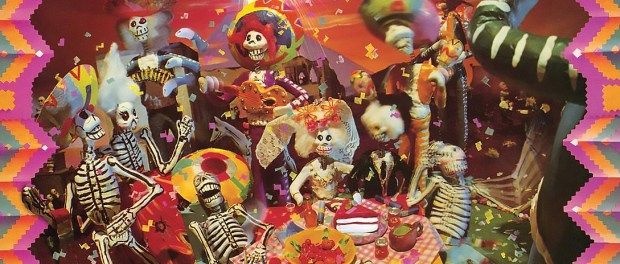
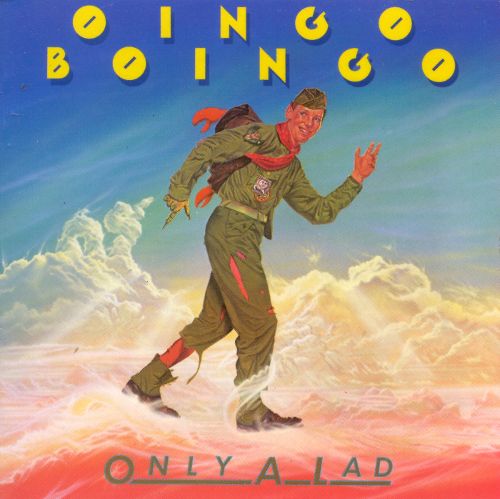
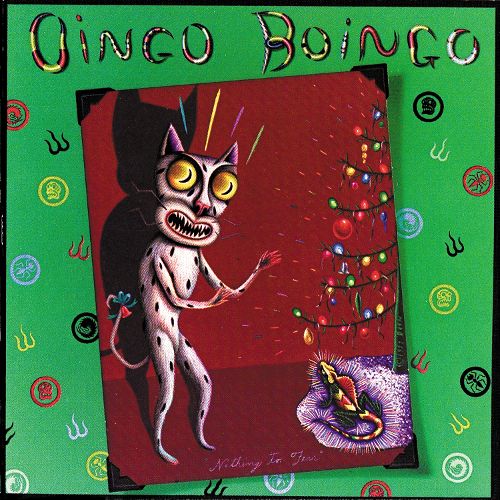
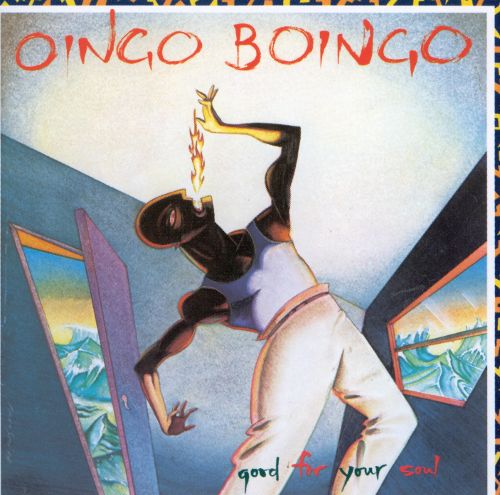
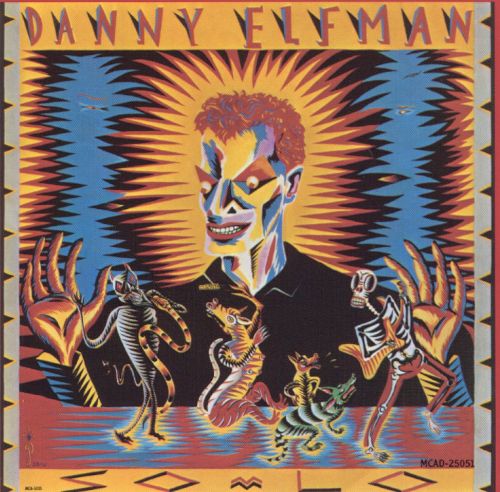
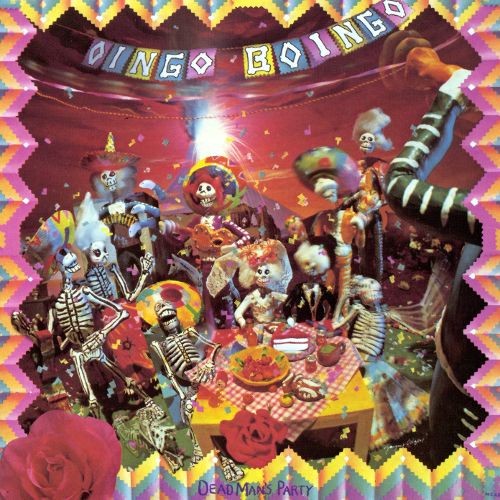
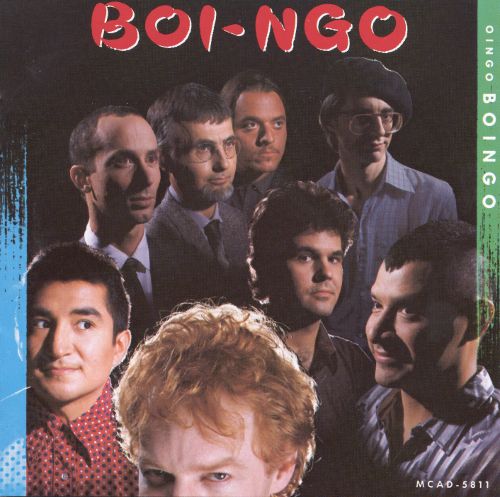
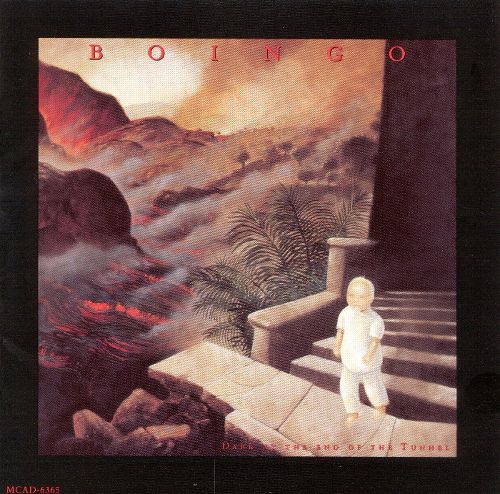
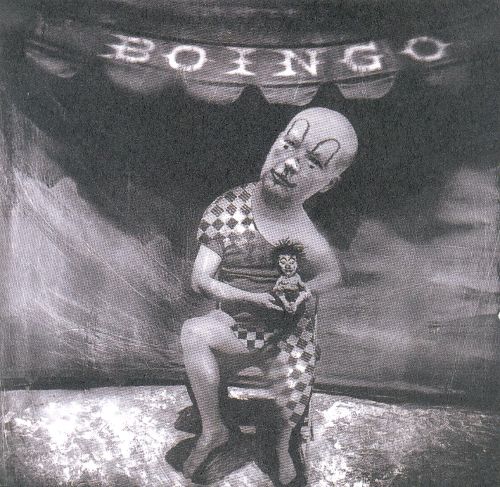
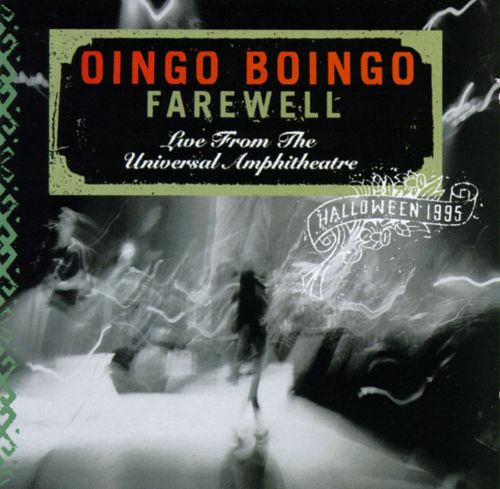
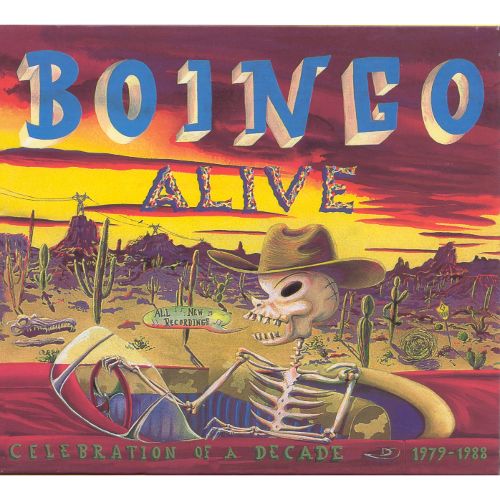
No Comments